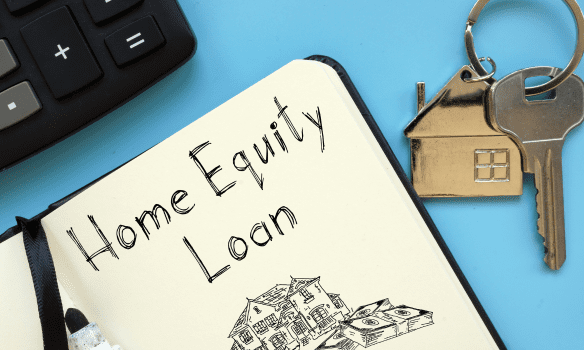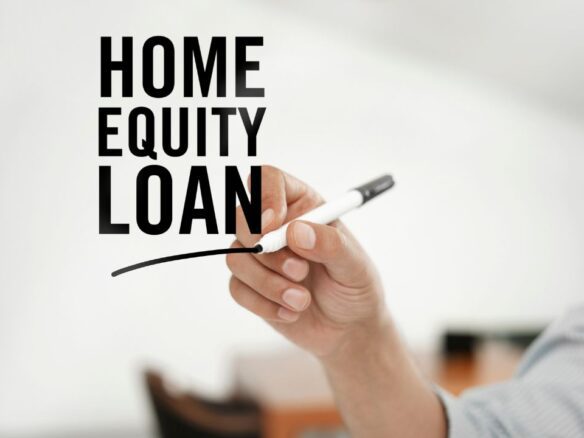Refinancing a mortgage can be a wise financial decision that could result in thousands of dollars in interest savings over the course of the loan. Refinancing, however, also has its fair share of possible dangers and errors that could end up costing you money and difficulties in the future. In this post, we’ll look at the most common blunders people make while refinancing their mortgages and how to avoid them.
Not Shopping Around for the Best Rates
When refinancing, one of the biggest errors homeowners make is not looking around for the best rates. Your monthly payment and the total amount you save over the course of your loan might be significantly affected by even a modest variance in interest rates. Before selecting a loan, make sure to request quotations from several and carefully examine the rates, fees, and terms.
Not Understanding the Costs of Refinancing
Like getting a new mortgage, refinancing your existing one has fees and taxes. These expenses may include closing costs, origination fees, appraisal fees, and more. Make sure you comprehend the fees associated with refinancing and take them into consideration before deciding to do so. The costs of refinancing can in some circumstances be more than the potential benefits.
Not Having Enough Equity in Your Home
Lack of equity in a homeowner’s home is a common mistake when refinancing. To refinance, the majority of lenders need a minimum of equity, often 20%. If your house doesn’t have enough equity, you might not be able to refinance or you might have to pay higher interest rates and costs.
Choosing the Wrong Loan Term
It’s critical to select the appropriate loan term for your financial objectives while refinancing. For instance, choosing a longer loan term may be the best option if your goal is to minimise your monthly payment. A shorter term, however, would be the preferable choice if you want to save money on interest payments over the course of the loan. Choose a loan term that fits with your financial objectives after giving it some thought.
Not Checking Your Credit Score
Your ability to refinance and the interest rates and terms you’re offered are significantly influenced by your credit score. Be sure your credit score is accurate before you begin the refinancing procedure. If your score isn’t as high as you’d like, work to raise it before submitting a refinancing application.
Taking Out Cash When Refinancing
While taking out cash when refinancing can be a mistake, refinancing itself can be a useful way to get funds. This may result in a rise in your loan balance and a longer period to pay off your mortgage, which will end up costing you more in interest over time. Before making this choice, think about if taking out cash is worth the added expenses.
Not Understanding the Risks of Adjustable-Rate Mortgages
Sometimes lower initial interest rates, can seem alluring. They do, however, carry the possibility that your interest rate will rise over time, possibly leading to greater monthly payments. Before selecting this refinancing option, make sure you are aware of the dangers associated with ARMs.
Not Working with a Reputable Lender
Refinancing your mortgage requires careful consideration when selecting a lender. Dealing with a reliable lender can make the process easier for you and prevent expensive blunders. Be sure the lender you choose has a solid reputation, positive client feedback, and transparent terms and costs.
Not Considering Your Long-Term Goals
It’s crucial to keep your long-term financial objectives in mind when refinancing. For instance, it would not be a good idea to refinance and pay the up-front charges if you want to sell your house in the near future. But, if you intend to live in your house for a long time, refinancing might be a wise choice that will end up saving you money. When deciding to refinance, give your long-term objectives significant consideration.
Not Providing Accurate Information to Your Lender
Another error to avoid when refinancing is giving your lender inaccurate information. Be open and truthful about all aspects of your finances, including your income, debts, and credit rating. If you give false information, your loan application may be rejected or delayed, which may cost you time and money.
Not Locking in Your Interest Rate
Because interest rates can change quickly, it can be expensive to not lock in your interest rate. To avoid prospective rate increases, make sure you fully comprehend the procedure for locking in your rate and take action as soon as feasible.
Refinancing Too Often
Refinancing can be a wise financial decision, but doing it too frequently will end up costing you money. Fees and closing charges are incurred each time you refinance, and they can build up over time. Think about if refinancing is worthwhile before doing so and how long it will take to recover your costs.
Not Having a Plan for Your Savings
You can reduce the amount of interest you pay overall and on a monthly basis by refinancing. Yet it’s crucial to have a strategy for those savings. Will you invest in your home, pay off other debts, or save for retirement with the money you save? To get the most out of refinancing, you should have a plan for your funds.
Conclusion
You may be able to save money over the course of your loan by refinancing your mortgage. Avoiding frequent errors, which can cost you money and headaches, is crucial. You may successfully negotiate the refinancing process and meet your financial objectives by looking around for the best rates, comprehending the fees associated with it, selecting the appropriate loan term, and dealing with a trusted lender.
FAQs
How can I discover a trustworthy lender for refinancing?
Ask friends and family who have recently refinanced their homes for advice while looking for a reputable lender. Also, you can conduct research online and read customer testimonials. Work with a lender who is willing to respond to your questions is communicative, and is upfront about their fees.
How can I assess whether refinancing is cost-effective?
Calculating the break-even point is the best technique to decide if refinancing is worthwhile. At this time, the money you will save on interest and monthly payments will be greater than the costs of refinancing. If you plan to stay in your house long enough to reach the break-even mark, refinancing may be worth it.
If my credit score is low, are I still able to refinance?
Sure, you may still be able to refinance with a poor credit score, but you may not qualify for the best prices. Before submitting a refinancing application, work on raising your credit score or think about dealing with a lender who specializes in helping consumers with bad credit.
When refinancing, should I go with a fixed-rate or adjustable-rate mortgage?
Your financial objectives and level of risk tolerance will determine whether you choose a fixed-rate or adjustable-rate mortgage. A fixed-rate mortgage may be the best option if you want a predictable payment and want to lock in a low-interest rate. An adjustable-rate mortgage can be a better choice if you’re willing to assume some risk and believe interest rates will decline in the future.
How often is it too often to refinance a mortgage?
There is no restriction on how frequently you can refinance, although doing so excessively might be expensive. Fees and closing charges are incurred each time you refinance, and they can build up over time. Make sure you’re refinancing for the appropriate reasons and that the advantages outweigh the disadvantages before you do so.







Join The Discussion